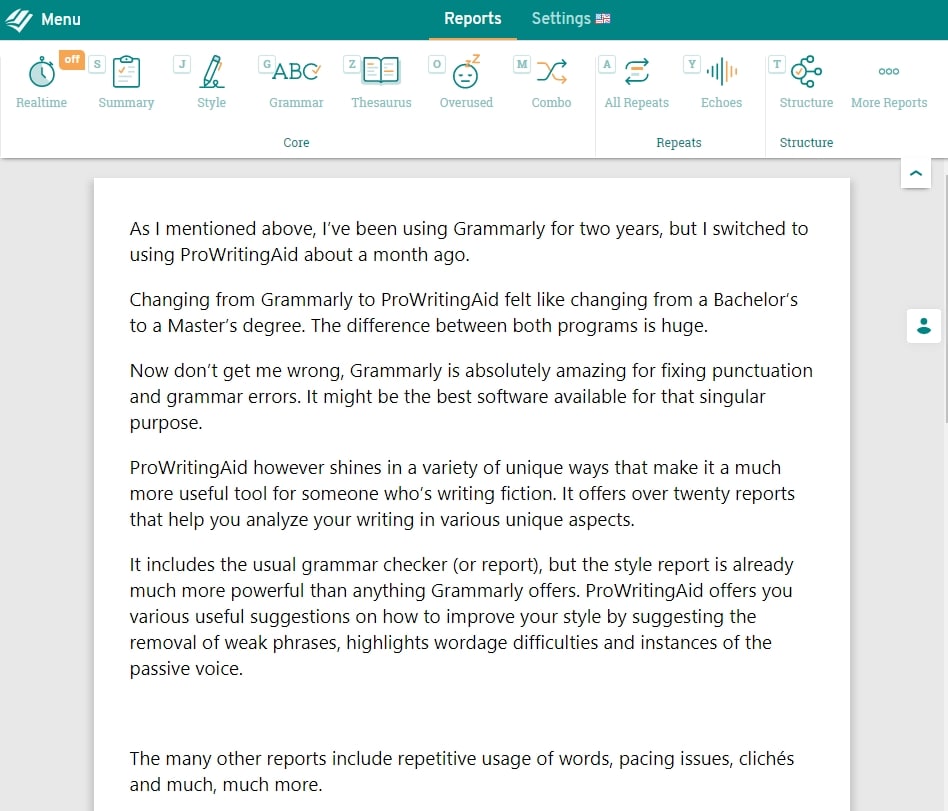Procrastination holds us back from doing the things important to us.

Forms of Procrastination
There are various forms of procrastination; all of them are bad for writers or for people who want to get things done.
Wasting time and putting of tasks till the last possible moment is common for most of us. Think back to your school days. Your teacher might have given you the task to write a report during your summer vacation. When did most of us do it? The last day of summer vacation because it was the last possible moment of doing it.
Another form of procrastination is to give other, more mundane tasks priority over those we actually want to get done. We tell ourselves that we need to do the chores or take care of laundry instead of getting our writing done.
Another silly form of procrastination is to wait for a specific point in time. It can be as simple as telling us that starting ten minutes before nine makes no sense and we should better start at nine. Yet, it can go as far as not starting on a new piece during the end of the week or months and instead wait until the beginning of the next one. The worst form of this is to wait till the beginning of a new year.
Procrastination has many forms, and it often hides under the guise of tasks that seem important for us at the moment. You should often ask yourself if what you’re doing right now is necessary.
My Personal Struggle with Procrastination
I used to be a major procrastinator, and I was obsessed with planning. Thinking back, there are countless moments in my life when I indulged in procrastination either consciously or unconsciously.
Things that come to mind are school projects, home work or studying for exams during my time at university.
The very worst though was my writing. In younger years I had the aspirations of writing long, epic stories or even an entire book series. Yet, many of these attempts were ruined by my obsession with planning, which was nothing but procrastination.
I remember creating detailed lists of stories, characters, places and even mind maps for my ideas. I spent time outlining entire books and even events that would take in later books. The only thing I never did was to sit down and write the full story. My attempts often consisted of a few pages or an initial chapter before I moved on to a new idea and restarted the same vicious cycle.
It took me a long while to realize that this was an entirely wrong way to go about things. While taking notes and rough outlining were fine, I was in reality avoiding to get my writing done. I was procrastinating.
Learning How to Handle Procrastination
Now the experience above happened a good decade ago. Still, when I became serious about writing and realized that excessive planning wasn’t productive, I still struggled with procrastination more than occasionally. Instead of sitting down and starting to write, I’d put it off by doing many other things or I was making excuses. It was common for me to tell myself to start writing at eight in the evening only to push it off till ten.
I knew I had to fix this and so I searched for a solution online. I read various blog posts and articles about procrastination. Still, there didn’t seem to be a simple solution. Finally, I had a look at self-help books about conquering procrastination. I ended up adding not one, but a handful of those books to my ‘to-read list.’
During my search for even more books, I found another forum-thread. It was here that one person said that reading about procrastination is just another form of it. Instead of reading about procrastination, the person wrote, one should simply sit down and do it. You can try whatever you want, there’s no other way.
A Solution Against Procrastination
There’s the saying that the simplest solution is often the best. It was true in this case as well. This little forum post was a wake-up call for me. I realized that all this searching for a solution against procrastination was yet another form of it. I could’ve spent hours on reading a book about procrastination, but it would simple be another excuse to not get my writing done. It was ridiculous, and I started to see it.
Instead, I made it clear to myself just how important writing was to me. It wasn’t something I should push off or even avoid. Hell, I loved writing stories! The only thing I didn’t enjoy was to start. The actual physical act of forcing myself to sit down and type out those first few words or lines.
After I realized the core of my problem, it was time to find a solution. Once more I thought back to my childhood and my school days. We all dreaded the end of break, but once the bell rang, it meant class had started. I realized I needed something like that, a bell that would force me to start.
So I set up an alarm on my phone right at the time I wanted to start writing. I told myself that right when this alarm went off, I had to sit down in front of my computer, open my word processor and put down those dreaded first lines.
4 Important Lessons I Learned
Starting Immediately is Key:
The urgency of an alarm clock and starting to write right when it rang helped me immensely. Usually I’d think about if I should even write or if there were any other things I should do beforehand. Now, I didn’t have the time to do so. No, I had to sit down and start.
Your Writing Doesn’t Get Any Better the Longer You Wait:
I’d often tell myself that I wasn’t ready to start writing just yet. I needed a few more minutes to get going, some music to put me into the right state of mind, or maybe I just needed to relax for a bit. Maybe I should even watch a motivational video so I’d reach my daily goal? The truth was, though, that I was just avoiding the inevitable for a tad bit longer. I just wanted a few more minutes before I’d have to sit down in front of the dreaded page.
What I learned though is that ‘preparing myself’ wasn’t helping. The writing was as hard as always, regardless of when I started. All I did was to limit the time I had for writing even further.
Getting Things Done Boosts Your Motivation:
Not wasting half an hour or an hour before I’d get my daily writing done had a very positive effect on me. It felt great, and I had a reason to be proud of myself. What was even better, it was motivating. It helped me to do it again the next day and also to start on any other task I’d planned right away.
Clear Deadlines are a Life Saver:
The urgency of an alarm clock can only do so much. What helped me even more was to incorporate clear deadlines into my daily writing. Writing 30.000 words or 30 hours a month wasn’t something that helped me to get things done. It was still the same as the report due at the end of summer vacation. Instead, I gave myself daily writing goals. I told myself I had to write at least an hour every day, finish one fictional story per week and take care of certain social media tasks first thing in the morning or when I got home from work.
Both things together didn’t give me much room to procrastinate anymore.
The Results
Once I realized what I had to do I changed my daily routine. For a long time I’d been rather lax about it.
Sure, I somehow got my work done, but never as much as I’d planned to, and I often went to bed feeling a bit annoyed at myself. It wasn’t uncommon for me to sit in front of YouTube or a game for half the evening only to start writing late in the evening. The result was that I either didn’t reach my daily writing goal or if I did, I didn’t get enough sleep. All because I’d procrastinated for hours, again.
By now I’m still using my daily alarm clock and my specific deadlines to get things done. It might be restrictive and at a time it can be a bit much, but my productivity went through the roof. Because I didn’t give myself any more room for procrastination.
If you’re someone like me who often struggles with procrastination, give the approach I’d outlined above a chance and see if it works for you.
Want to learn more about writing? Check out my articles on self-discipline and writing by hand.



























